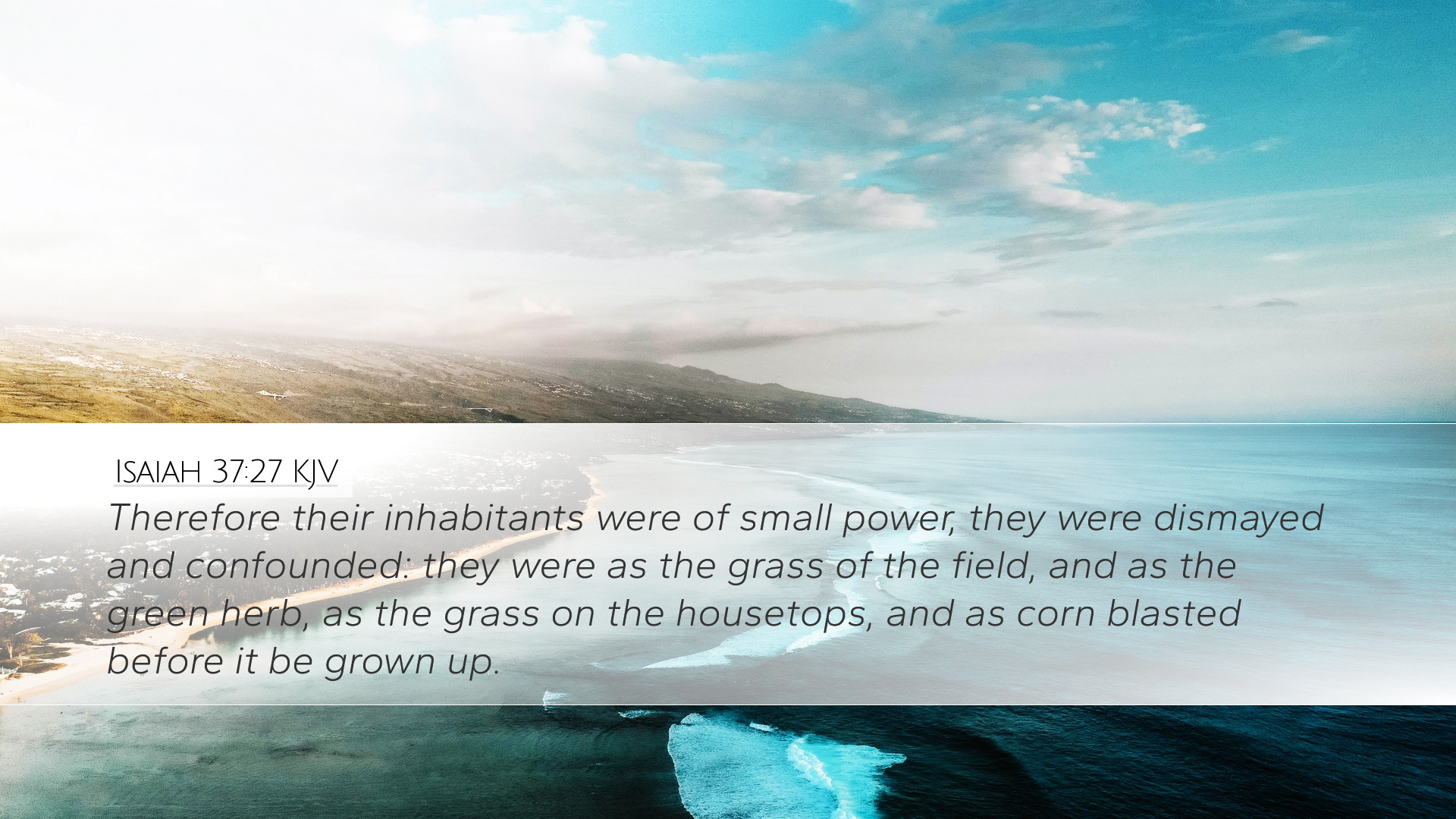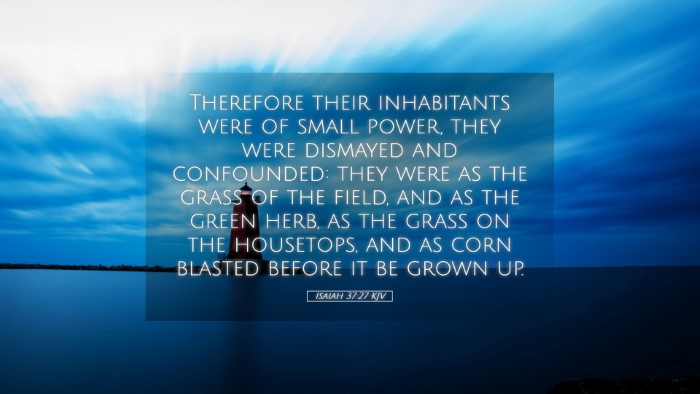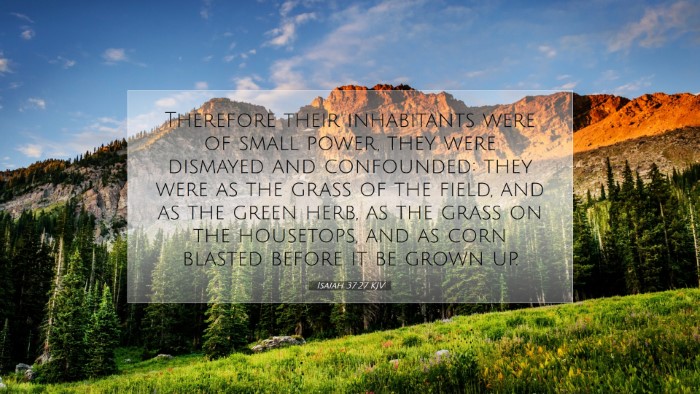Commentary on Isaiah 37:27
Introduction
Isaiah 37:27 forms a crucial part of the narrative concerning the Assyrian siege of Jerusalem. This verse highlights God's omniscience and His sovereignty even amidst the turmoil faced by His people. The insights from various public domain commentaries provide a deeper understanding of the theological and historical contexts that shape this scripture.
The Verse in Context
"But I know your sitting down, and your going out, and your coming in, and your rage against me." (Isaiah 37:27, KJV)
This verse is situated within a divine response to King Hezekiah's distress over the Assyrian threat, as articulated by the Lord through the prophet Isaiah. The preceding verses reflect the dire circumstances faced by Jerusalem, and Isaiah's prophecy assures that God is fully aware of the plots and schemes of the enemy.
Theological Insights
-
God's Omniscience
Matthew Henry emphasizes that God's knowledge extends to every detail of human life. In saying “I know your sitting down,” He illustrates that God is aware not just of physical movements but the deeper intentions and thoughts of the heart. This comforts believers, showing that they are never hidden from God’s sight.
-
The Rage Against God
Albert Barnes provides insight into the phrase “your rage against me,” suggesting that Hezekiah’s enemies displayed a hostility not only toward the kingdom but against God’s sovereignty. This highlights the spiritual dynamic of conflict, where rebellion against the Lord is ultimately futile.
-
Divine Sovereignty
Adam Clarke notes that understanding God’s sovereignty is essential in interpreting this verse. It underscores the notion that while the Assyrians may have been mighty in their own right, their power was limited compared to the omnipotent will of God. He ultimately governs nations and rulers as part of His divine plan.
Historical Context
To fully appreciate Isaiah 37:27, one must consider the historical backdrop of the Assyrian invasions during the 8th century BC. The Assyrians, known for their brutal tactics, sought to conquer Jerusalem. This verse occurs in a moment where fear and despair could have easily overwhelmed Hezekiah and his people.
-
God's Assurance
Matthew Henry remarks on how this passage serves as an assurance to Hezekiah that God had foreseen the intentions of the enemy. Such a reminder was vital for the king’s faith amidst frightening circumstances.
-
Prophetic Reassurance
Albert Barnes elaborates on Isaiah's prophetic role, underscoring that prophecies often include specific revelations of God’s power over nations. The clarity of God’s knowledge served to bolster the faith of His people in times of uncertainty.
Practical Applications
The theological richness of Isaiah 37:27 yields numerous practical applications for believers today:
-
Trust in Divine Knowledge
Pastors and theologians should encourage congregants to trust that God is intimately aware of their circumstances. Just as Hezekiah was reminded of God's attention and care, contemporary believers can find solace in the knowledge that God sees every struggle.
-
Resistance Against Hostility
In light of the “rage against me,” students of the Bible are called to reflect on how they respond to opposition and spiritual warfare. Understanding that God knows their plight can empower them to stand firm in faith.
-
God's Sovereignty in Leadership
This verse also serves as a reminder to leaders within the church. Clarke’s insights remind us that leadership must recognize God’s sovereign control over all situations, encouraging humility and dependence on God's guidance.
Conclusion
Isaiah 37:27 stands as a remarkable reminder of God’s knowledge and sovereignty over the affairs of men. Commentaries by Matthew Henry, Albert Barnes, and Adam Clarke converge on the understanding that while adversaries may rage and plots may form, God's oversight and assurance uplift His people amid distress. For pastors, students, and scholars, this verse is a profound encouragement to affirm faith in the face of challenges, recognizing the ever-watchful presence of the Almighty.


